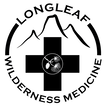|
Updated 9/12/2021
Understanding how our bodies create, maintain and lose heat is key to preventing hypothermia. By taking a few proactive measures to make sure that the body is able to optimize heat generation and maintenance, outdoor ventures in cool and cold climates can be safer and more comfortable. The body produces heat by metabolizing the energy in the food we eat, making it important to remain well fed and hydrated before, during and after participating in activities in cold environments. Ensuring regular consumption of calories throughout activity as well as eating meals with a balance of carbohydrates, fats and proteins will provide adequate energy to keep the internal furnace burning. Proper hydration supports consistent blood volume and regular circulation of blood throughout the body and ensures that this warmth travels to the extremities and skin. In order to retain the heat generated by the body, it is important to wear proper clothing for the environment. Using a layering system that includes nonrestrictive, dry materials will allow for a clothing system that can be adjusted throughout the activity depending on the conditions and level of exertion. The goal is to stay warm without sweating in order to avoid the resulting chill of evaporative cooling. Individuals should add and remove layers consistently to achieve warmth without sweating. Recognizing the symptoms Mild hypothermia occurs when the core body temperature decreases. Individuals experiencing mild hypothermia can present with signs that include violent shivering, pale, cool skin and a series of changes often referred to as the “umbles”: stumbles, grumbles, mumbles, and fumbles. Early recognition of these symptoms in ourselves and our group members is key to treating hypothermia in its mild phase. A patient with mild hypothermia can be treated as follows:
Additional Information All LWM courses, including the self-paced and fully online Outdoor First Aid course, provide detailed information on the body’s response to cold and cold injuries.
2 Comments
Leave a Reply. |
Archives
December 2020
Categories
All
|

 RSS Feed
RSS Feed
